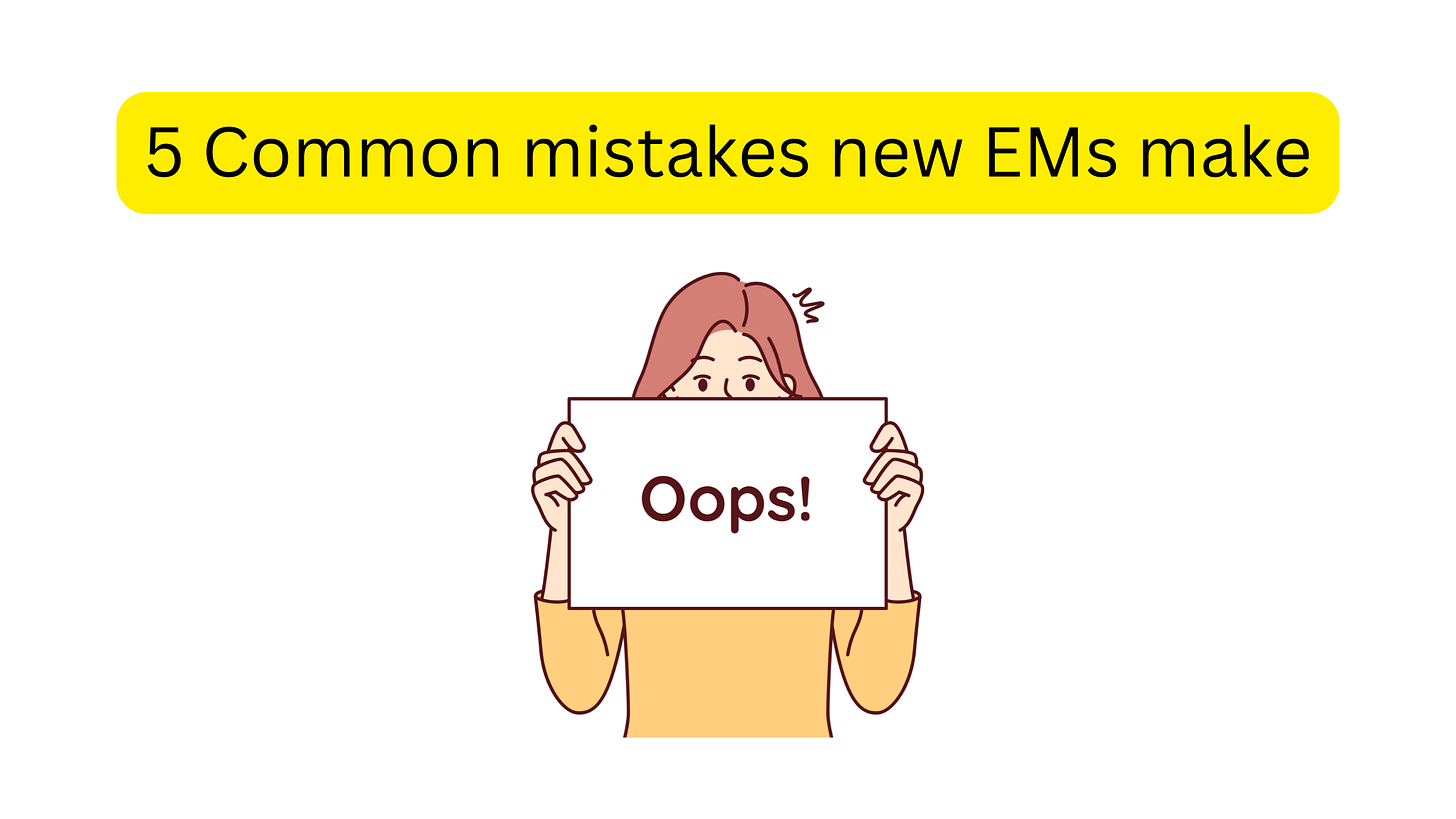5 Common mistakes Developers make when transitioning to Management (and how to avoid them)
Moving from development to management is a significant career shift, and it's easy to make mistakes along the way. In this article, I want to share five common pitfalls developers face when transition
Stepping into a management role after years of writing code is a big move. Suddenly, you're not just responsible for your own work, you’re in charge of an entire team. It’s exciting, but the transition isn’t always smooth. Many developers assume that management is just an extension of their technical skills, but it’s a whole new game.
Here are five common mistakes developers make when becoming managers—and how you can avoid them for a smoother journey.
Consider supporting my work and subscribing to this newsletter.
As a free subscriber, you get:
✉️ 1 post per week
🧑🎓 Access to the Engineering Manager Masterclass
As a paid subscriber, you get:
🔒 1 chapter each week from the book I am writing “The Engineering Manager’s Playbook”
🔒 50 Engineering Manager templates and playbooks (worth $79)
🔒 The complete archive
1. Continuing to Code Instead of Delegating
It’s hard to let go of coding, especially when you’ve built a career around it. But as a manager, your job is no longer about how much code you write—it’s about enabling your team to succeed.
Mistake: Trying to be the go-to coder, which leads to burnout and missed leadership tasks.
Solution: Trust your team. Delegate tasks and focus on supporting your team’s growth. You’ll free up your time for leadership and see your team thrive.
2. Micromanaging the Team
The temptation to micromanage is real, especially when you’re used to full control. But hovering over every detail stifles creativity and signals to your team that you don’t trust them.
Mistake: Checking every line of code or over-controlling the process.
Solution: Focus on outcomes, not processes. Set clear goals, then step back and let your team figure out the best way to achieve them.
3. Neglecting Soft Skills Development
Technical expertise alone won’t make you a great manager. Management requires a whole new set of skills—like communication, conflict resolution, and giving feedback.
Mistake: Relying solely on technical skills and ignoring people management.
Solution: Invest time in developing soft skills. Understanding and empathizing with your team will make everything run smoother.
4. Failing to Adapt to a Strategic Role
As a developer, you’re used to solving the problem in front of you. But as a manager, you need to think bigger. It’s no longer just about the day-to-day—you’re now responsible for the long-term success of your team.
Mistake: Getting stuck in the details and missing the big picture.
Solution: Shift your focus to strategy. How does your team’s work align with company goals? Start planning for the next quarter or year to set your team up for future success.
5. Not Seeking Feedback and Mentorship
It’s easy to feel like you should have all the answers when you’re promoted. But one of the biggest mistakes new managers make is going it alone.
Mistake: Not asking for feedback or seeking mentorship.
Solution: Reach out for support. Find a mentor, ask your peers for advice, and get feedback from your team. Management is a skill that you can develop over time, and seeking guidance will help you grow faster.
Useful links
👨💻 Become a better Software Engineer with CodeCrafters (use my partner link to get 40% off and build your own Redis, Git, Kafka and more from scratch).
🎯 Book a mock interview with me (System design or Behavioural & Leadership) to smash your next real interview!
👋 Let’s connect on LinkedIn!




